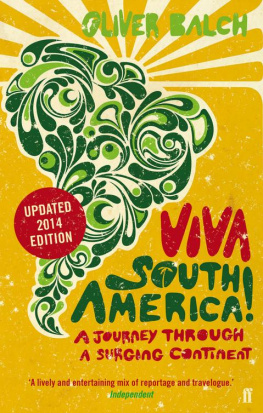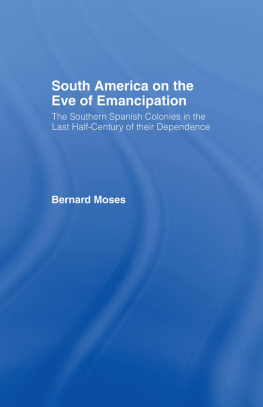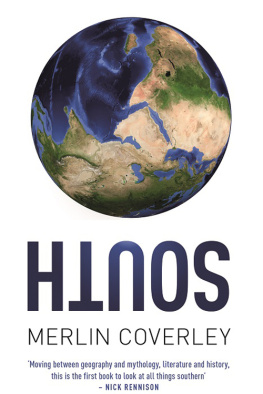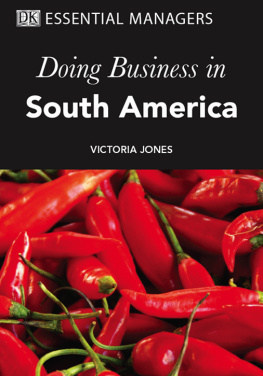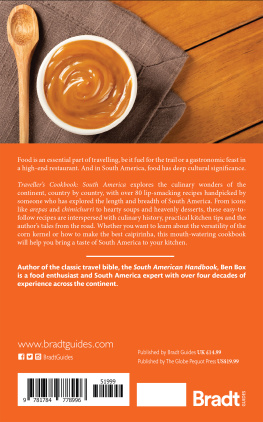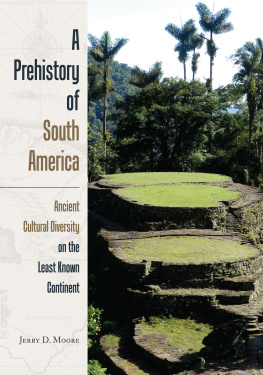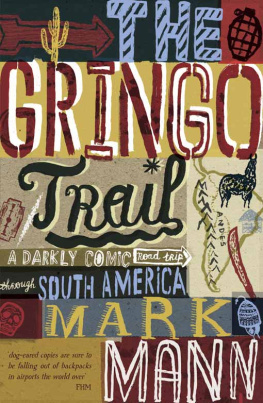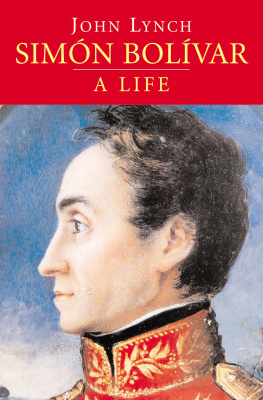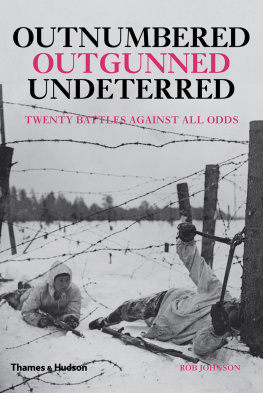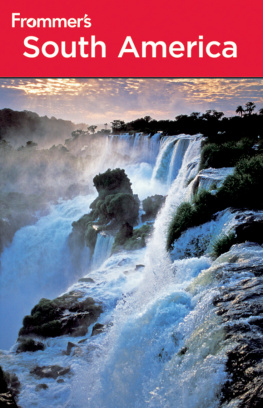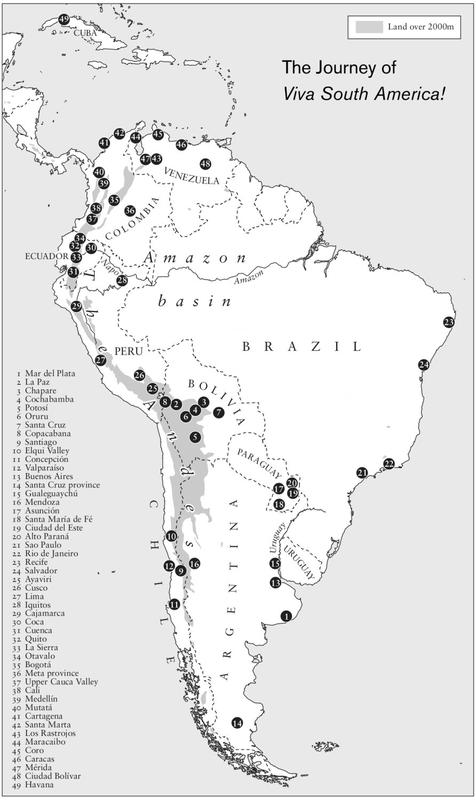Revolutionary, state-builder, philosopher and ladies man, Simn Jos Antonio de la Santsima Trinidad Bolvar y Palacios represents the archetypal South American hero. Hes Fidel Castro, Che Guevara and the Incan Tpac Amaru all rolled into one.
Born into the upper echelons of Venezuelan aristocracy in 1783, he enjoyed a privileged childhood and a golden youth in Europe. Orphaned and widowed before his twentieth birthday, he also had his share of tragedy.
On his return to his homeland in 1807, Bolvar dedicated his life to winning independence for Hispanic America. A master strategist and charismatic general, hes credited with liberating modern-day Colombia, Venezuela, Panama, Ecuador, Peru and Bolivia.
Ever since his death in 1830, the Great Liberator has become the subject of nationalistic pride and literary fable. To school children, he is the man who vanquished the Spanish and held high the torch of liberty. To political theorists, he is the visionary who mapped out a unified future for the free Americas. To everyday South Americans, he is the bronze statue sitting high on a horse in the town square, model citizen, die-hard romantic and martyr to his cause.
Today, the first President of Greater Colombia enjoys a cult following across the continent. Ardent patriot, American hero, macho male, faithful Catholic Bolvars image is used to fit them all. He has a country named after him. Heads of state espouse his ideas. Poets and artists evoke his memory.
But Bolvar, like South America itself, remains little known to the outside world. Even the great emancipator once described his own continent as shrouded in darkness. For those after a torch to light their way, theres none brighter than the Liberators own life and legacy.
Headlong into chaos
We threw ourselves headlong into the chaos of revolution.
SIMN BOLVAR, THE JAMAICA LETTER, 6 SEPTEMBER 1815
Mar del Plata, Argentina, 4 November 2005
A carnival mood brightens the rain-soaked skies above Mar del Platas football stadium. I shoulder my way through the cheering crowd to the security rail at the front, squeezing into a space between a student anarchist and a vocal group of Falklands veterans.
On stage, an ageing protest singer is warming up the audience with a repertoire of rock and revolution.
Viva la libertad! the front man hollers, prompting thirty-five thousand voices to scream back in unison.
Long live freedom!
The order of play is reversed, with the spectators on the pitch and the performers on a temporary platform above the lower-tier seating. Flags and banners carpet the playing field. An assault of three-letter acronyms flutters in the wind: MSP, MST, MTR, PCR. The members of the Revolutionary Patriotic Movement are the only ones with sufficient calligraphy skills to protest in longhand. Above them all, dangling from the roof, hangs a fifty-foot banner of Che Guevara, the South American revolutionary icon.
Amid the lashings of an Atlantic squall, the Argentine seaside resort is reverberating with the hopes of a continent. Unionists cry out for better wages. Socialists bellow for workers rights. The sixties rocker dreams of a future without war. The veterans want their islands back. The long-haired anarchist shouts for nothing and everything all at once. Deafening and desperate, their collective clamour shakes the open-seater stadium.
The battle-worn vocalist is done with giving peace a chance. He passes the microphone to a diminutive indigenous woman from Ecuador. Hidden beneath a cerulean shawl and a persistent drizzle, the strident-voiced activist reads out the conclusions of a four-day Peoples Summit. She retires to rapturous applause.
On the seat beside her in the front row sits Diego Maradona, Argentinas all-time soccer legend. A picture of George W. Bush is stamped across his T-shirt, the words War Criminal scribbled in English above. The barrel-chested football star raises a clenched fist to the crowd. The stadium erupts a second time at the gesture of their home-grown hero.
The true star of the show then takes the stage: Viva the people of South America!
Viva! we all shout back. The roar rebounds around the stadium like a war cry.
Viva life!
Viva! Raw and visceral sounds our response.
Viva the Fatherland!
Viva! Louder the echo grows.
The television cameras are rolling. The protestors are rapt. There, in the rain, on the stage, before his public, Hugo Chvez is in his element.
Just over an hour ago, the charismatic Venezuelan president tells the crowd, a Cuban companion came up to me and passed me the phone, and I was like, Well, who am I talking to? Calling collect from Havana, no less, was Fidel Castro.
Viva Fidel!
Viva!
Our Cuban brother regrets not making it in person to this historic event, but, let us be in no doubt, hes watching every minute via satellite television. Were going to make a racket! Viva the new world! Viva the pueblos of the world!
Viva!
Do you know how the goodbye went? The showman is gearing up his act, living up to his billboard hype.
His voice signed off like a thunderclap that crossed the Caribbean, the Orinoco, the Amazon, the River Plate and arrived here, telling me: Chvez. Hell, Viva Che!
Viva! The poster child of political revolution earns the loudest shout so far.
The bad weather worsens as the speech unfolds, Heaven and orator competing in torrents. As a baptism into South American revolutionary politics, it feels appropriate that I should be getting soaked to the skin.
Chvez is supposedly in town to hobnob with his fellow heads of state. Up for discussion is the ALCA (rea de Libre Comercio de las Amricas), a continental free-trade agreement proposed by the USA. In a barricaded conference hall across town wait thirty-three American presidents from north and south. Mar del Plata has been put on a war footing in preparation. Shops shelter behind metal grilles. A security cordon blocks off downtowns evacuated streets. Police riot divisions brush off their body armour and truncheons.
The combative Venezuelan premier has already decided how the presidential summit will end: We have come here today for many reasons, to march, to sing, to shout, to fight, but each one of us has brought a spade, a gravediggers spade, because here in Mar del Plata is the tomb of the ALCA!

